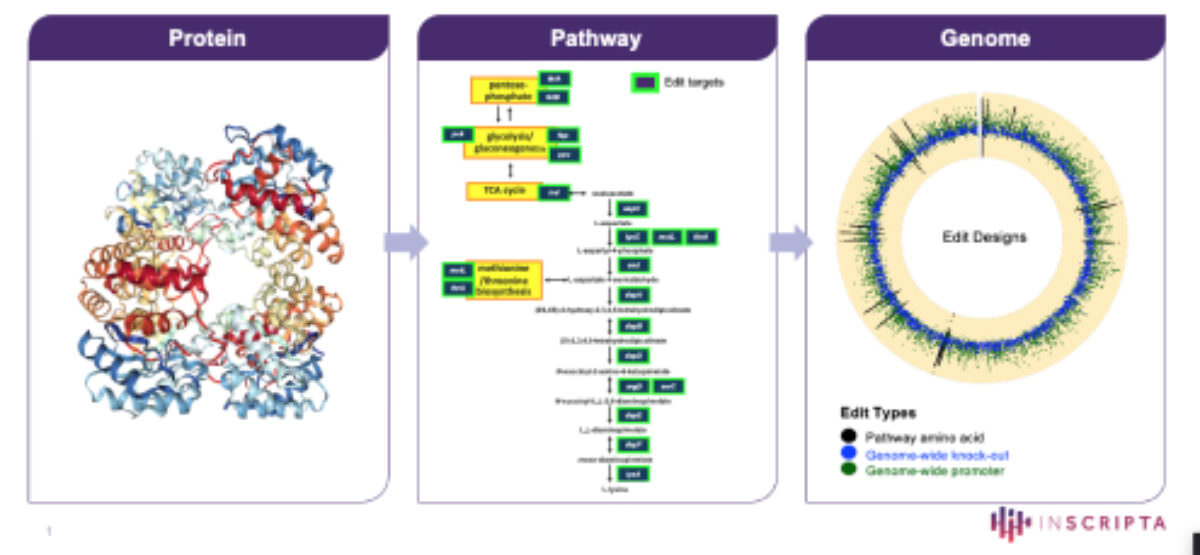Metabolic engineering with the Onyx® platform – Optimization of the native lysine biosynthesis capability in E. coli
Lysine is an essential amino acid, which must be obtained through diet, as humans and other animals lack the metabolic pathways to produce it themselves. Natural lysine producing microorganisms such as Corynebacterium glutamicum and E. coli have been used to manufacture lysine as a feed additive by way of fermentation at commercial scale for over fifty years. During this time, various classical mutagenesis and strain engineering approaches have been applied to continuously lysine production to keep pace with demand in this billion dollar market.
Metabolic engineering is a complex endeavor given the number of genes often involved in a biosynthetic pathway. We used lysine production in E. coli as an example application to demonstrate how Onyx technology can rapidly generate valuable genetic diversity for metabolic engineering (Forward Engineering). Rather than guessing where to engineer, we methodically and precisely targeted for saturation mutagenesis, every residue of every protein in the full lysine biosynthesis pathway. And just to be sure we didn’t miss anything important elsewhere in the genome, we also targeted the remaining 4,000 open reading frames with a knock-out and a set of promoter substitutions.

Lysine overproduction libraries included targets for protein, pathway and genome-level engineering
For most metabolic engineering projects, a high-throughput screening system is a must for efficient discovery of improved strain variants. Using automated colony picking, liquid handling, 96-well plate cultivations, and high-throughput mass spec for lysine detection, we rapidly evaluated thousands of individual library variants and discovered numerous hits over wild-type in both anticipated and unexpected loci, all of which can be quickly combined for further gains using a Forward Engineering approach and Inscripta’s Designer and Resolver web-based tools.
While high throughput screening of isolates is powerful, the ability to enrich for improved variants in a population using pooled cultivation strategies can be an even faster, more cost-effective and thorough approach to mining libraries for Forward Engineering. Using the same lysine pathway and genome-wide libraries described above, we also cultured the populations in the presence of a toxic lysine analogue, well-known in the literature to select for lysine overproduction mutants. After two days of cultivation, we sequenced the barcoded pools and were able to identify many more potential lysine production hits than could have been reasonably obtained using high throughput screening.
Generate any library at the push of a button.
The Onyx gives you the flexibility and scalability to develop virtually limitless libraries. Create insertions, deletions, substitutions, or full saturation mutagenesis, in a single gene, a pathway, or the whole genome.
- Copyright © 2025 Inscripta, Inc. All rights reserved.
- Legal Notices
- Privacy Policy
